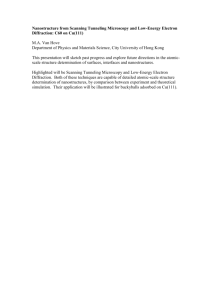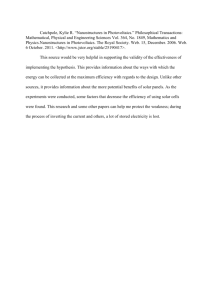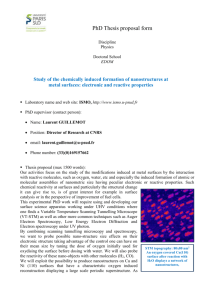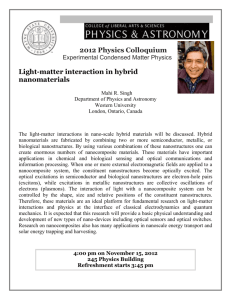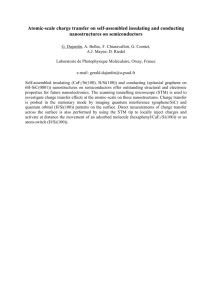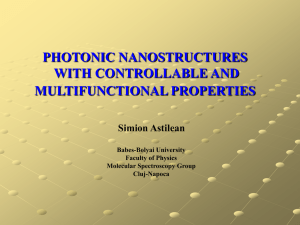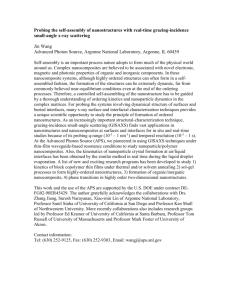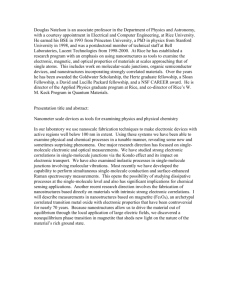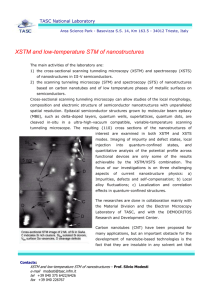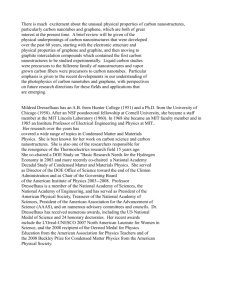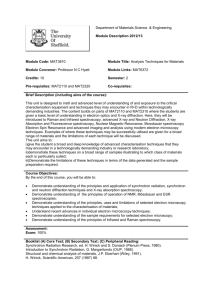Synthesis of sulfur-doped carbon nanostructures and theoretical
advertisement
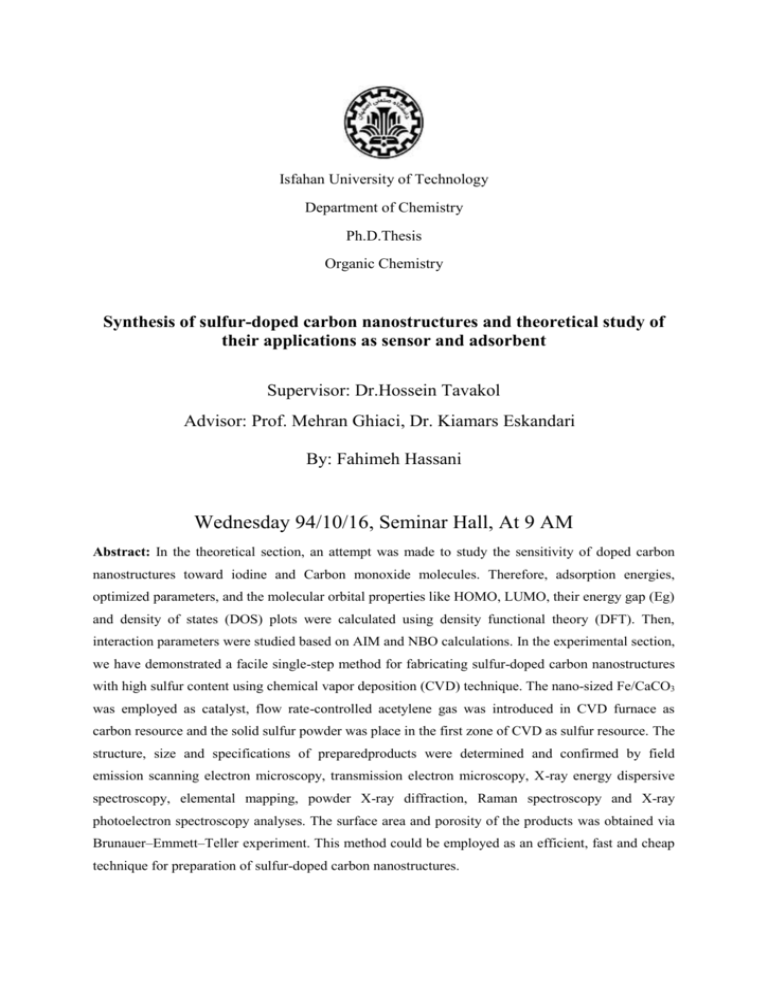
Isfahan University of Technology Department of Chemistry Ph.D.Thesis Organic Chemistry Synthesis of sulfur-doped carbon nanostructures and theoretical study of their applications as sensor and adsorbent Supervisor: Dr.Hossein Tavakol Advisor: Prof. Mehran Ghiaci, Dr. Kiamars Eskandari By: Fahimeh Hassani Wednesday 94/10/16, Seminar Hall, At 9 AM Abstract: In the theoretical section, an attempt was made to study the sensitivity of doped carbon nanostructures toward iodine and Carbon monoxide molecules. Therefore, adsorption energies, optimized parameters, and the molecular orbital properties like HOMO, LUMO, their energy gap (Eg) and density of states (DOS) plots were calculated using density functional theory (DFT). Then, interaction parameters were studied based on AIM and NBO calculations. In the experimental section, we have demonstrated a facile single-step method for fabricating sulfur-doped carbon nanostructures with high sulfur content using chemical vapor deposition (CVD) technique. The nano-sized Fe/CaCO3 was employed as catalyst, flow rate-controlled acetylene gas was introduced in CVD furnace as carbon resource and the solid sulfur powder was place in the first zone of CVD as sulfur resource. The structure, size and specifications of preparedproducts were determined and confirmed by field emission scanning electron microscopy, transmission electron microscopy, X-ray energy dispersive spectroscopy, elemental mapping, powder X-ray diffraction, Raman spectroscopy and X-ray photoelectron spectroscopy analyses. The surface area and porosity of the products was obtained via Brunauer–Emmett–Teller experiment. This method could be employed as an efficient, fast and cheap technique for preparation of sulfur-doped carbon nanostructures.
